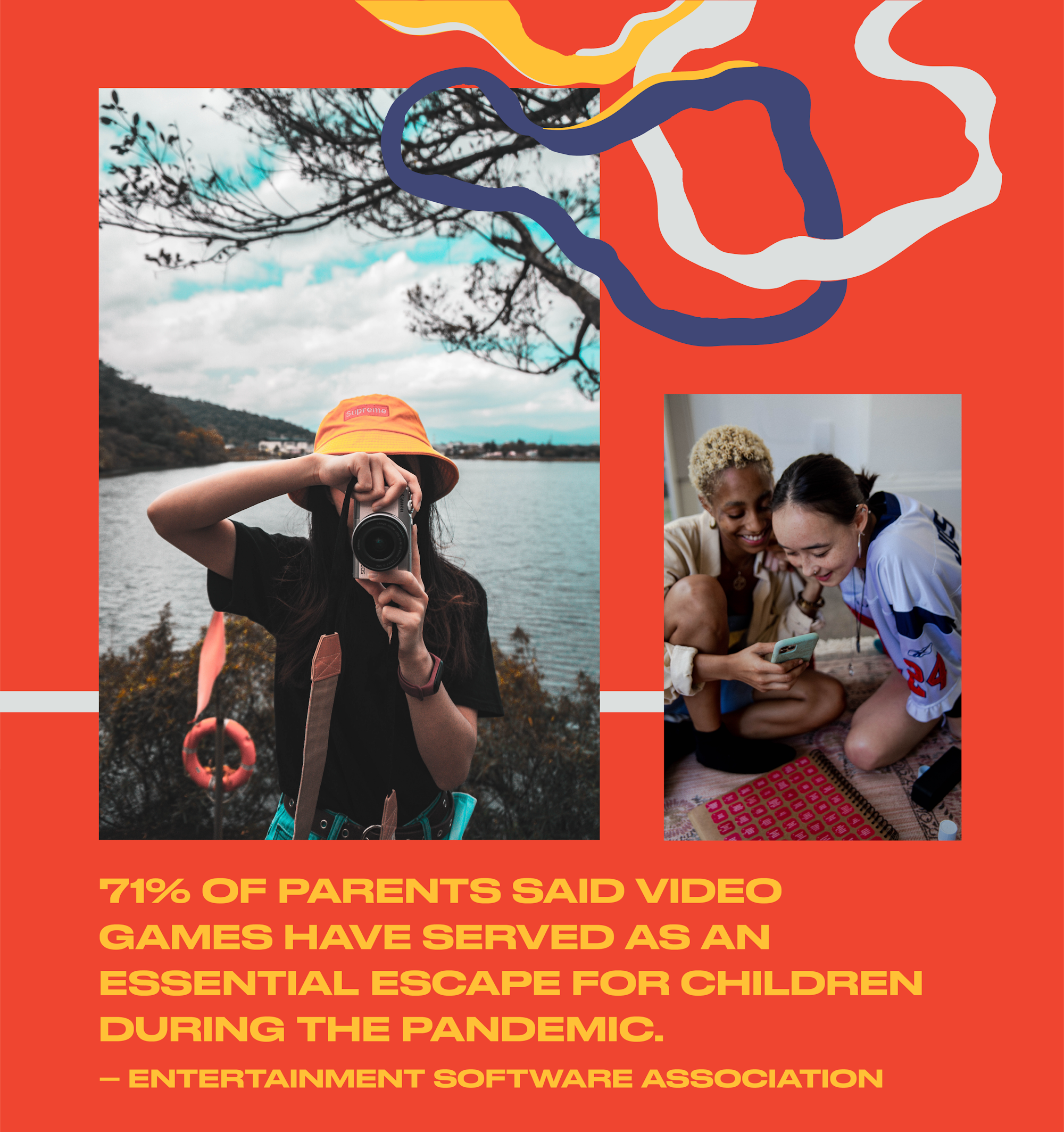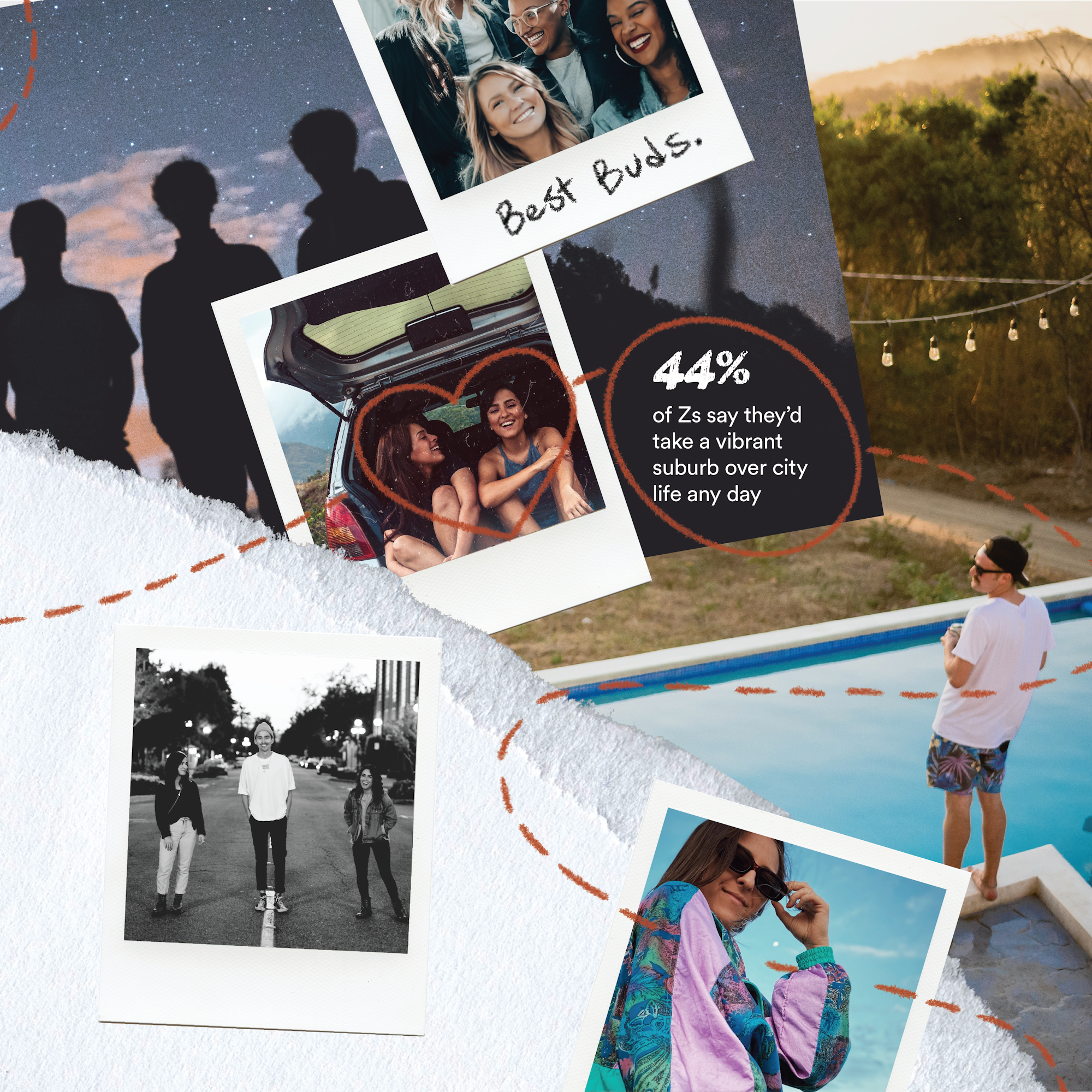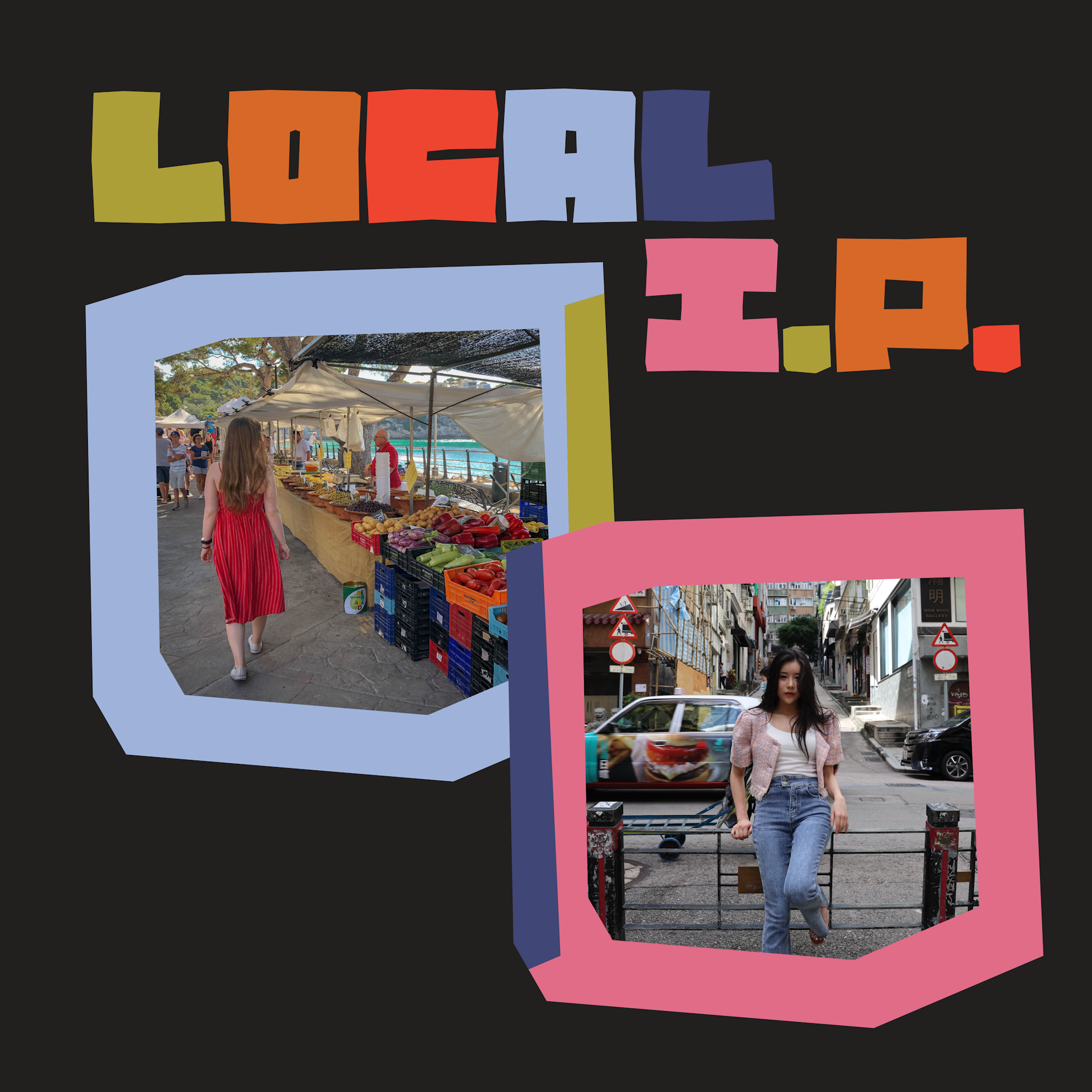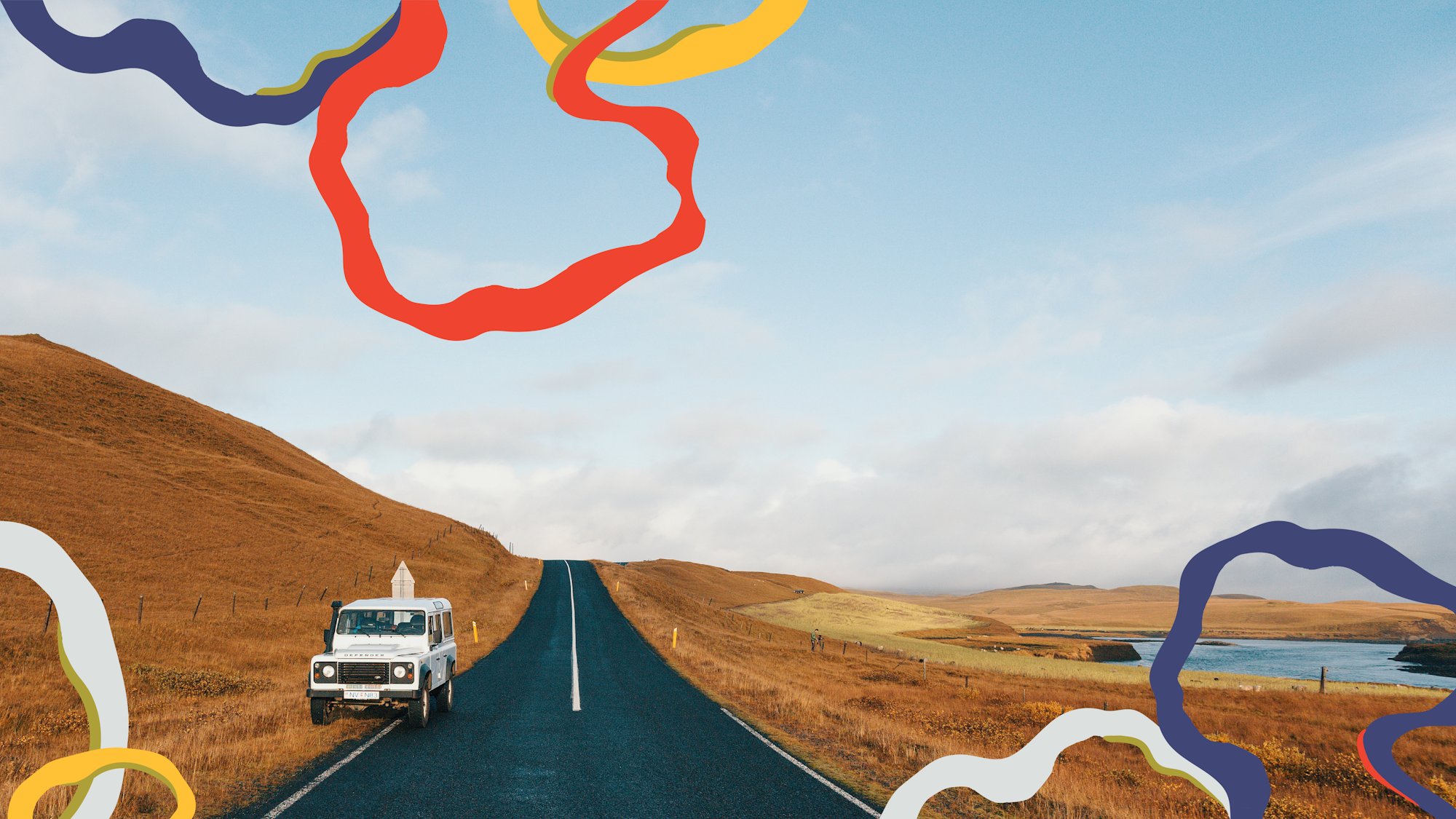
10 Min. Read
Great Escapes
As Gen Zs look to break from the monotony of the last two years, they say today’s definition of luxury is increasingly defined by geographic place.
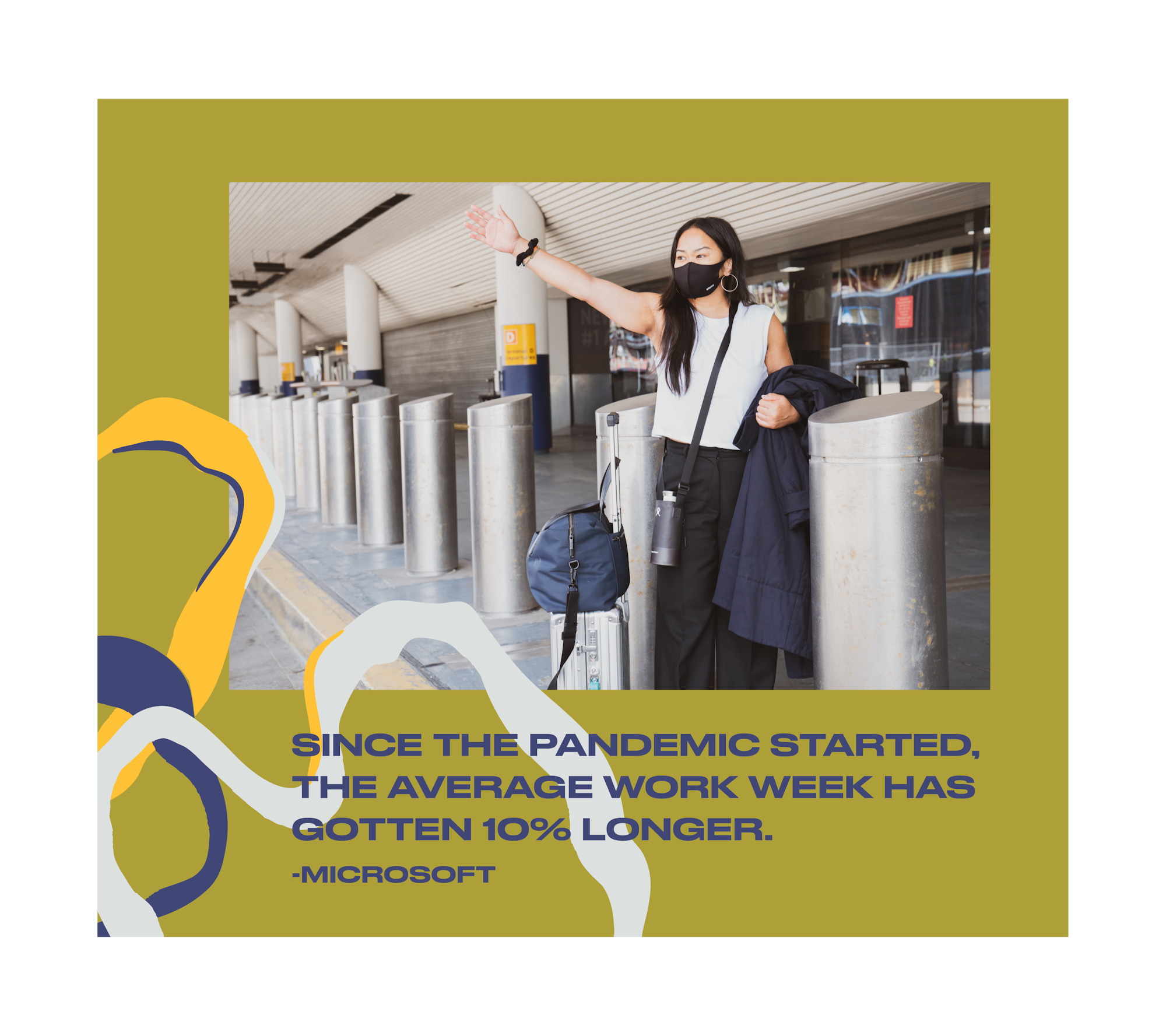
“THE WORST OF ALL WORLDS”
Over the last 18 months, the boundaries between work, school and personal time have become increasingly blurred. Gen Zs said they often feel like they’re stuck with “the worst of all worlds”: where schoolwork follows them home, socializing happens on Zoom, and the workday has seemingly stretched from 9‑to‑5 to 24/7. Even vacations — the whole point of which is to unplug from daily life — have increasingly morphed into “workcations,” aka travel that blends work and play while the expectation is that you’re constantly checking in on Slack.
However, as vaccination rates increase, travel bans are lifted, and tourist destinations reopen, Gen Zs have told us they’re turning to the spaces and places that enable them to relax and recharge — both physically and mentally. In fact, after more than a year of coping with the “always-on fatigue” of pandemic realities, travel and hospitality has emerged as the ultimate luxury, and young people are reshaping what hospitality will look like going forward.
REVENGE TRAVEL
Gen Zs are now leaning into “revenge travel” — booking big memorable trips to make up for their pent-up demand for new experiences over the last 18 months. In fact, nearly two-thirds of Gen Zs are planning revenge travel in the coming months, according to Expedia. Meanwhile, 86% of Millennials and Zs say they’re seeking out unique, once-in-a-lifestyle, and bucket list trips, according to research by Contiki. More so than relaxing, Zs are ready to experience something epic; think safaris, natural wonders, and hidden treasures.
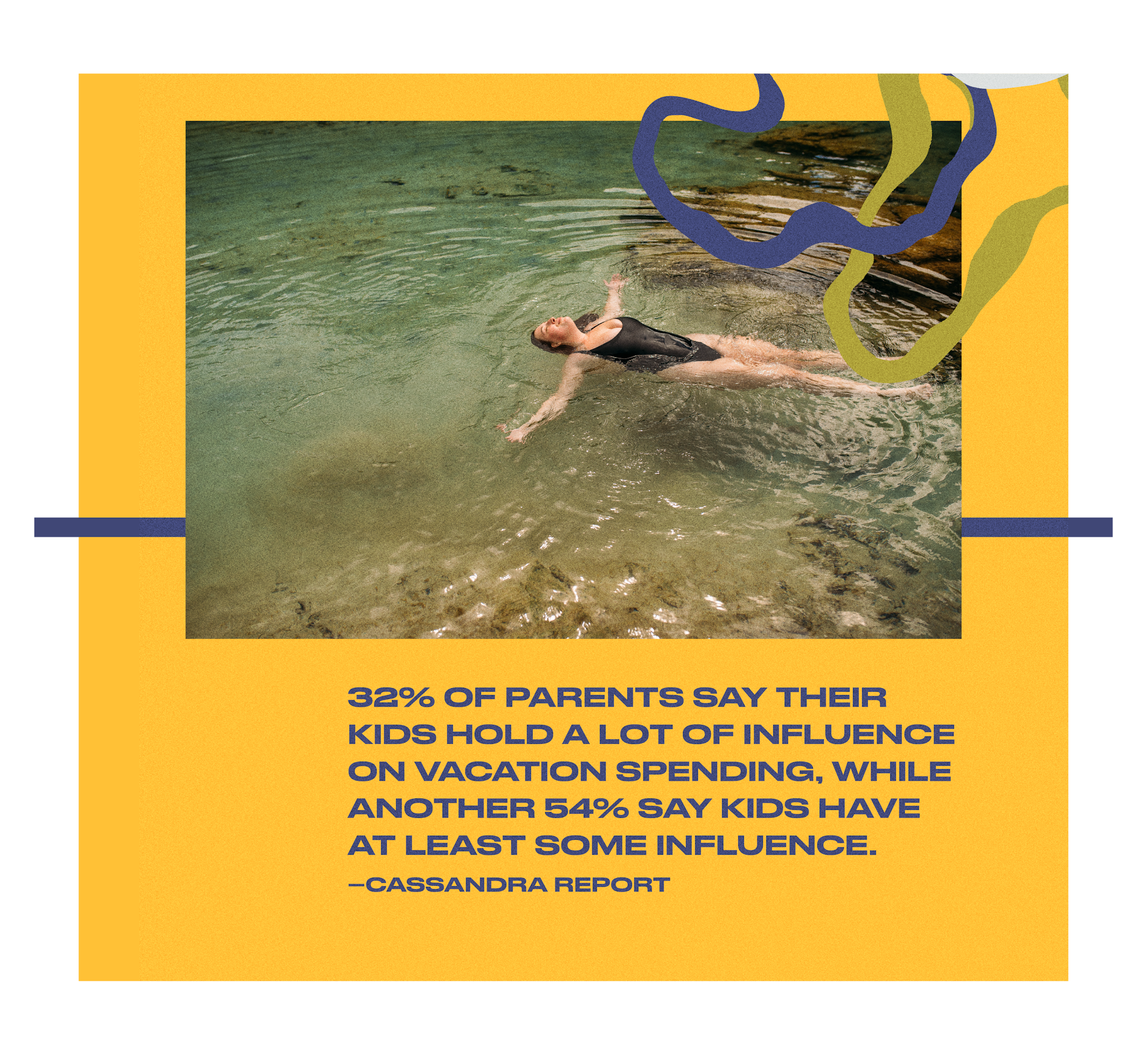
Families are leaning into the revenge travel trend too. After all, families have faced some of the most overwhelming pandemic challenges — from remote schooling to lack of childcare to mental health breakdowns on the parts of both kids and parents. So, while wanderlust cuts across generational lines, families with kids under the age of 18 were more interested in vacationing in 2021 than non-families, according to research conducted by MMGY Travel Intelligence. They’re ready to make memories, and what could be more memorable than “The Most Magical Place on Earth?” Attendance at Disney amusement parks in both Orlando and California are now back “at or near” capacity levels, according to the company’s second-quarter earnings report.
Hospitality brands are quickly embracing more family- and group-friendly offerings. For example, Hilton recently rolled out “Confirmed Connecting Rooms,” which allows guests to easily book connecting rooms. W South Beach, not typically known as a family-focused hotel, has started offering outdoor yoga classes for kids. And Kimpton Hotels installed “Chief Virtual Learning Officers” in some locations to help remote learners with everything from Zoom log-ins to printing problems — giving parents a much-appreciated break from playing tech support.
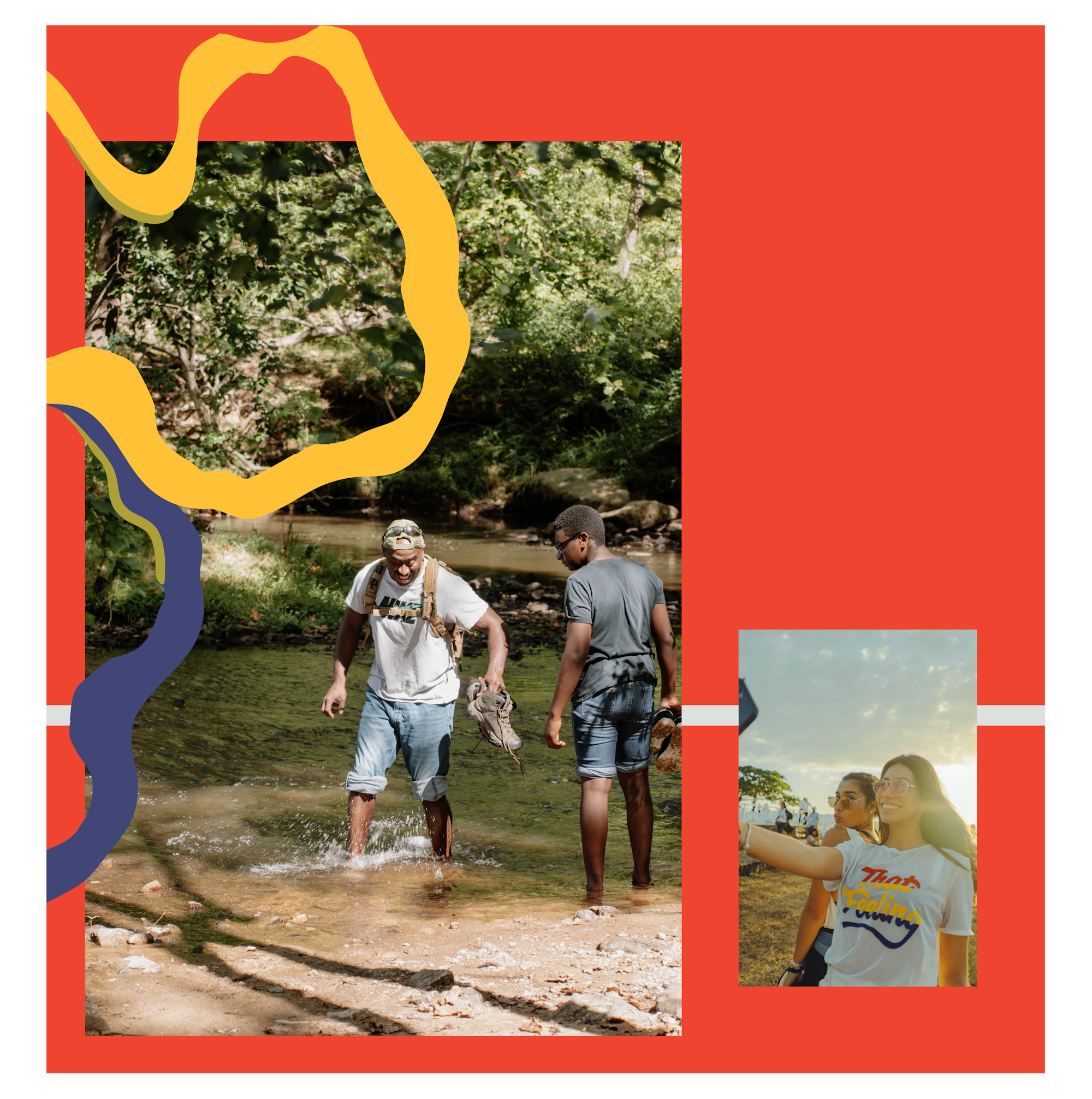
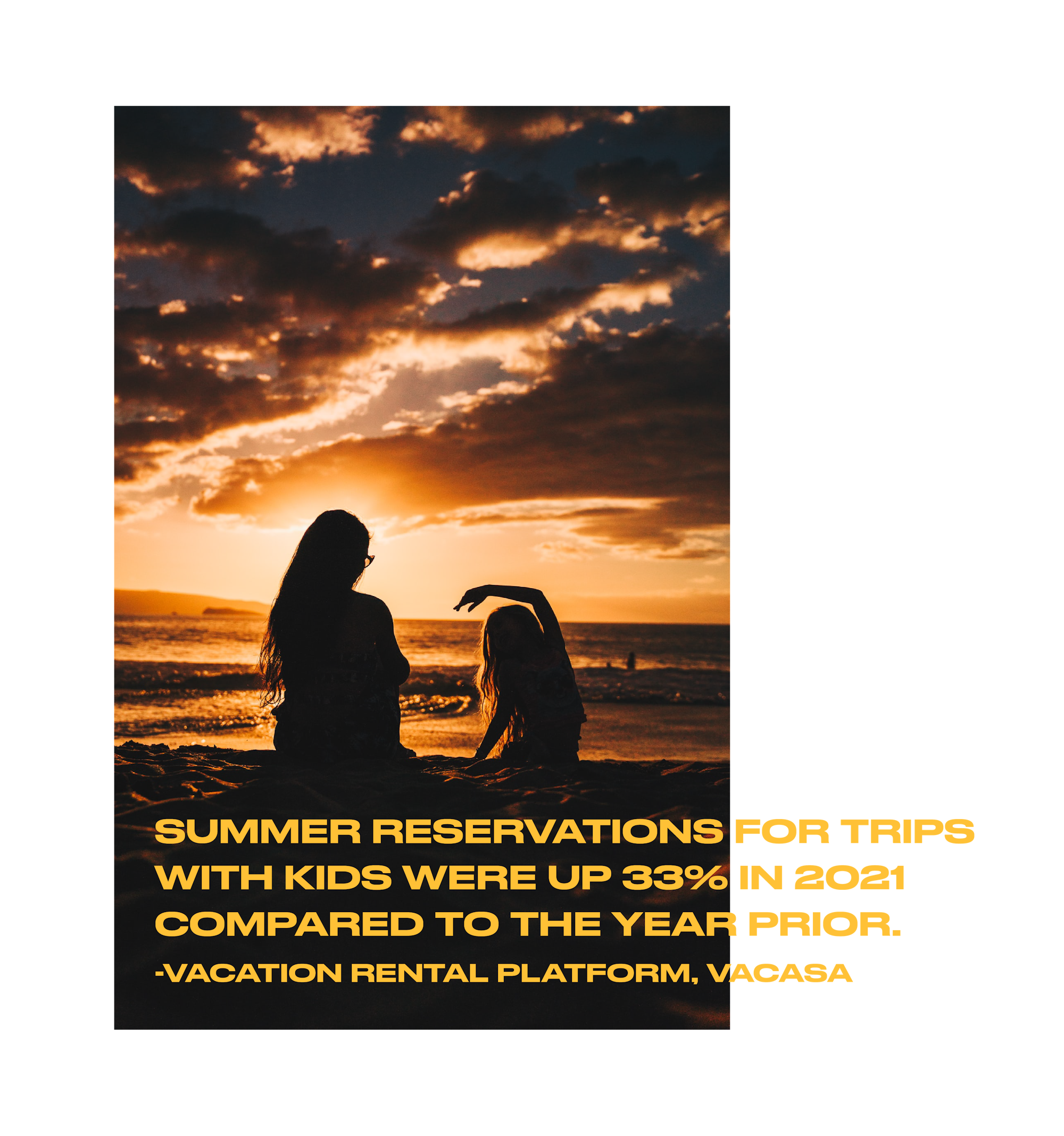
NEW GEN AMENITIES
While Boomers set the tone for many of today’s hospitality industry’s expected amenities — from pillow menus to lobby bars — the pandemic has accelerated the adaptation of amenities suited for a younger generation of travelers.
Many Gen Zs told us that their version of travel is, ideally, stepping into the center of an epic, custom, and co-created adventure. Case in point: Allie, 25, who travels often, told us she’s never booked a hotel because they’re, well, boring. “Why pay $200 just to sleep in an ugly room and rely on Google to find stuff?,” she joked. According to her, hotels seem like places to sleep, whereas short-term rentals, like Airbnbs, are places to experience life. Julien, 18, told us that when he travels, he wants to stay up all hours of the night and jump on beds — not something that’s typically appreciated by hotel staff or guests. Cristy agrees: “At hotels, you can’t be loud. You can’t sing at the top of your lungs at 1 a.m. Airbnbs are definitely more fun, especially with a big group of friends.”
Of course, many modern hotels can’t be bucketed as “boring” or “stuffy.” Eaton House, a hospitality concept in Washington D.C. and Hong Kong aims to turn “physical and digital spaces into platforms for creativity and social and environmental impact.” Designed as a cultural gathering space for “innovators, progressive thinkers, and creatives,” the hotels feature a radio station, indie movie theater, and wellness center offering reiki and sound baths, and hosts events including artist residencies, concerts, public talks and more. The concept is much closer to a social club-meets-cowork space than a hotel. Meanwhile, Ibiza Six Senses offers room configurations for large groups (think seven of your best friends), and amenities are more in the vein of cliff jumping and underwater guided meditation than fine dining.
Large hotel chains are increasingly expanding their boutique offerings to provide guests with custom, quirky and localized experiences. For example, Marriott’s Tribute Portfolio, which is made up of dozens of locally-owned boutique hotels around the world, offers guests spaces with an indie spirit, from local art exhibits to handwritten notes to expert local recommendations — all with the powerful backing of Marriott Rewards perks.
Brands are also increasingly jumping into the hospitality space to create memorable experiences. Taco Bell famously created a pop-up hotel and resort in Palm Springs. More recently, KFC partnered with the House of Harland hotel in London to create an immersive experience. Guests were ferried around town in a “Colonel mobile” Cadillac, and all rooms were decked out with a “Press For Chicken” room service button. Meanwhile, Marc Jacobs did a full takeover of scenester boutique Montauk hotel The Surf Lodge, which included branded décor, boogie boards, a concert series, and pop-up shop.
Expect Gen Zs to increasingly look for immersive travel experiences that offer not only a warm bed, but also a unique sense of adventure from intellectual events to surf camps. In fact, travel experiences such as tours, activities, and events already account for 10% of global travel revenue, according to travel experience site Peek.com.
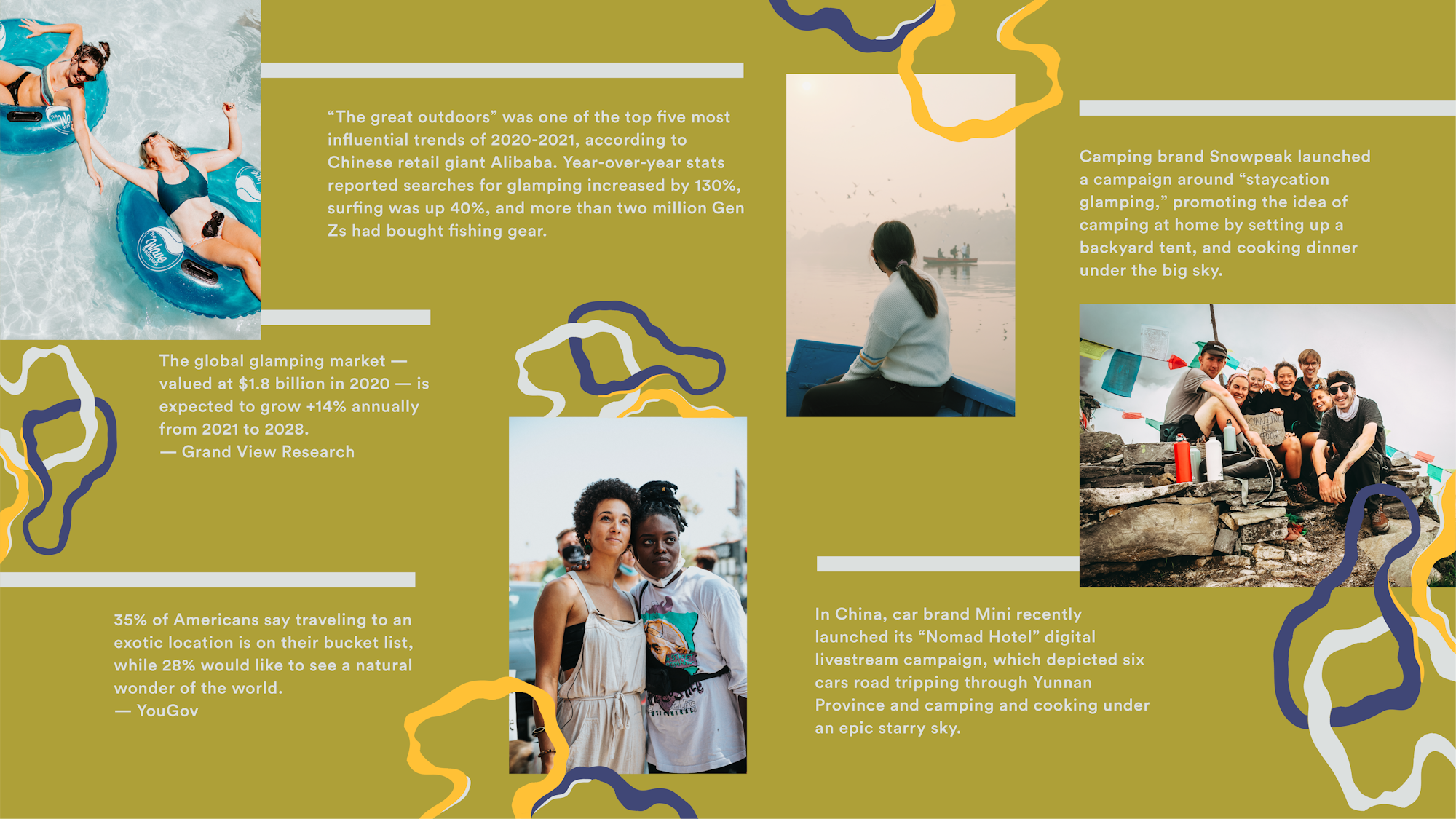
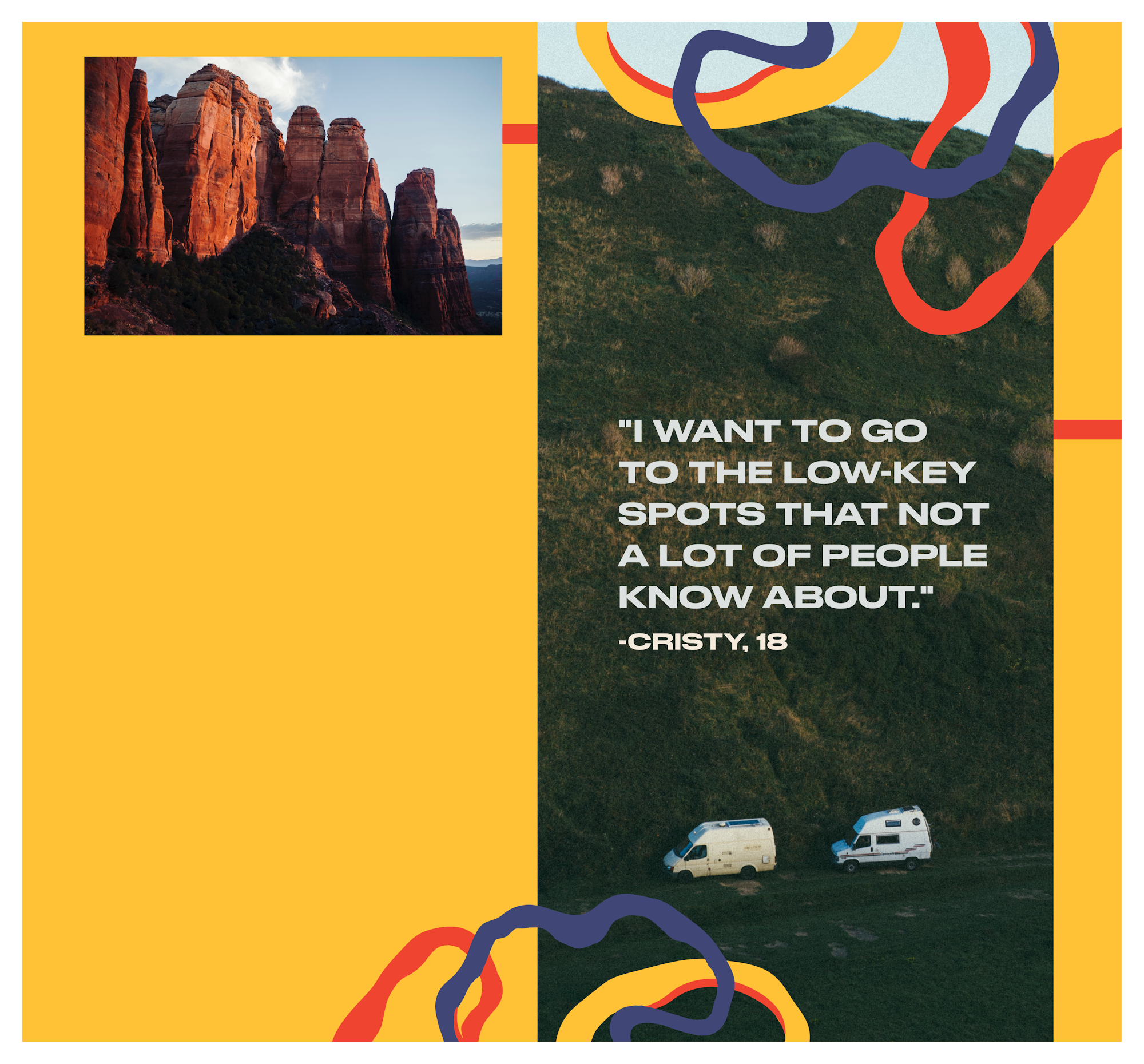
NATURE’S CALL
In our research into the most aspirational travel destinations today, Zs felt that one amenity was clearly the most sought after: raw untouched nature. During the pandemic, Zs have had a reawakening to the power of off-the-grid and undiscovered natural spaces. Ever, 18, told us: “The sound of nature makes me feel safe. I’ve noticed that I feel more connected to myself when I’m near water.”
Meanwhile, Cristy, 18, said that while her parents are still all about destination travel — “they always want to go to the tourist attraction places, where the name is known” — she’s more interested in finding “low-key spots that not a lot of people know about.” On her bucket list is Bellingham, WA, which she said seems lush, beautiful and remote. During pandemic lockdowns, Cristy was even inspired by her favorite YouTuber, Michelle Reed, to drive around looking for remote nature spots where she could hike. She wasn’t alone. A full 67% of travelers use Instagram to find travel inspiration before booking a trip, according to research conducted by Facebook. Instagram even pushed the hottest brand of summer 2021: the National Park Service. Reservations to visit Montana’s Glacier National Park in June 2021 sold out within minutes.
THE EVOLUTION OF LUXURY TRAVEL
As wildfires, droughts, air quality and other climate catastrophes persist (and with the U.N.’s recent pronouncement that global warming cannot be curbed), expect Zs to continue to place high value on places where they can immerse themselves in the increasingly scarce commodity of the great outdoors. And forget the granola bar crowd; in 2020, the great outdoors became a true luxury good.
High-end travel operators Black Tomato and Auberge Resorts Collection created the ultimate road trip itinerary complete with loaner Mercedes-Benz and lux accommodations along the way; Hotels.com offered an election week special that allowed one lucky guest to avoid the news cycle by secluding themself in a man-made cave 50 feet below ground in New Mexico; meanwhile, the 1 Hotel chain became a staycation go-to for its biophilic interior designs which incorporated plants, green walls and moss gardens.
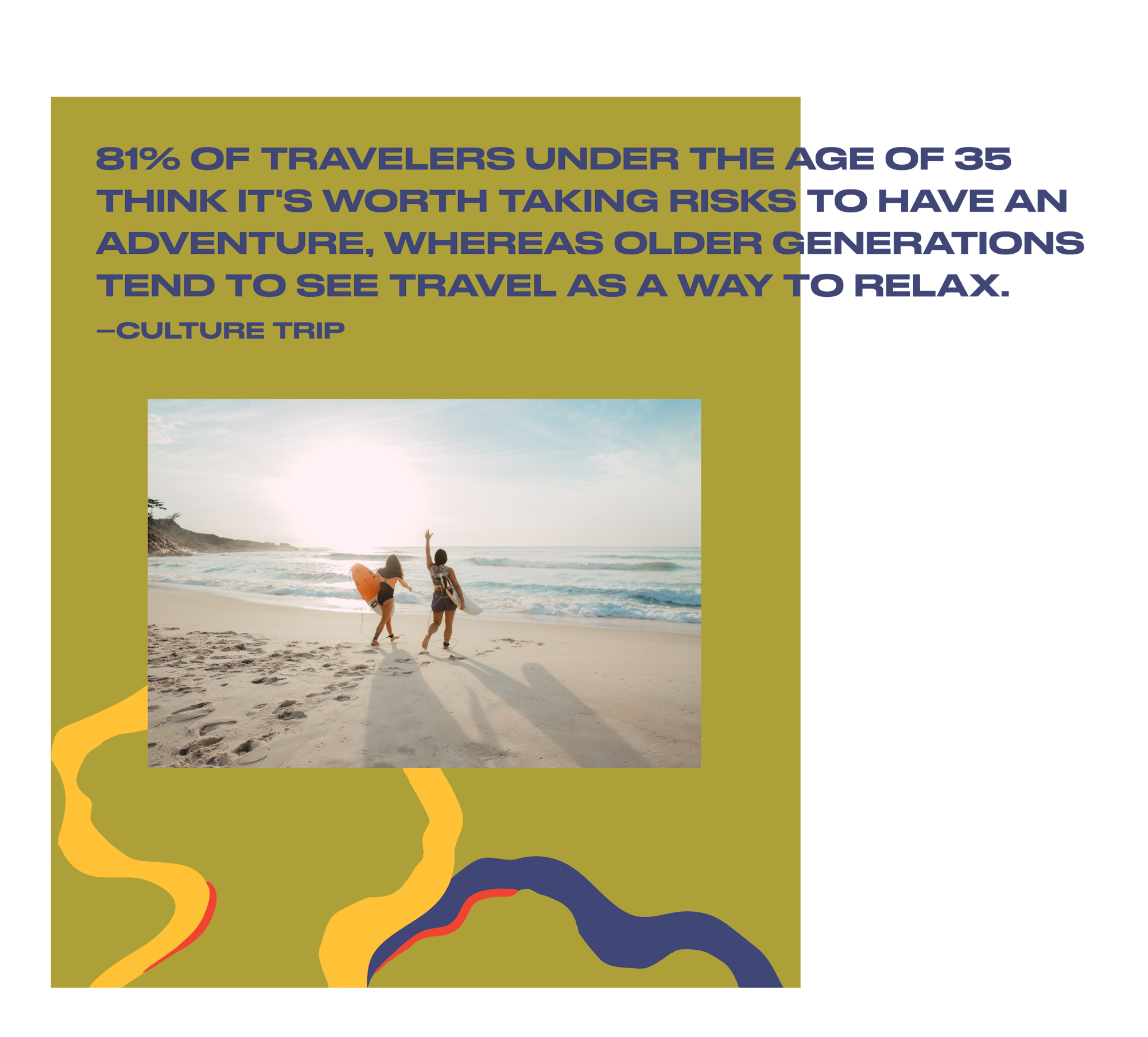
Luxury fashion has been quick to embrace outdoorsiness (or at least the aesthetic of it), and street style is now as likely to include fitted suits as it is luxury parkas, hiking boots, and high-tech materials fit for the trails. Recent brand collabs have included The North Face x Gucci, Dior x Descente, Jil Sander x Arc’teryx, and Moncler x Rick Owens, among others.
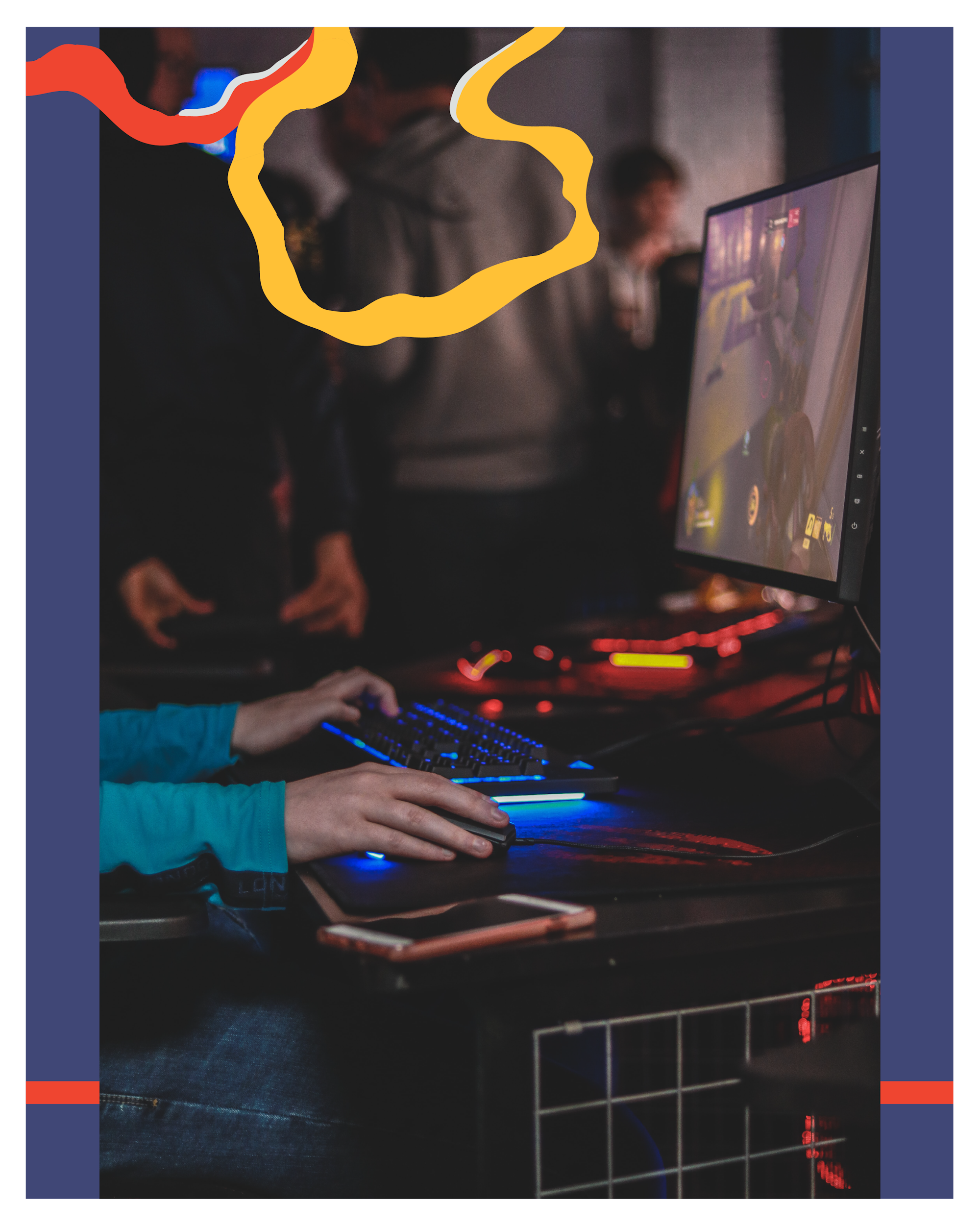
TRAVEL 2.0
Finally, Gen Zs told us that escapism isn’t just about physical place; they’re indulging in psychological escapism too. While more Gen Zs are experiencing wanderlust, there’s still a subset of young consumers that aren’t ready, able, or even interested in actually hitting the road. Still, they’re looking for ways to indulge in travel-enabled escapism — albeit from the comfort and safety of their own homes. Airbnb found that in 2020 nearly one in five Americans had participated in virtual travel via their computer, tablet or phone. And, of those travelers, nearly half (47%) said they still felt a genuine connection with the place.
Gaming, while always a means for mental and emotional escape, has been found to ”decrease isolation,” according to researchers — which came in handy during the pandemic. Gen Zs immersed themselves in games including Animal Crossing, Call of Duty and Fortnite, as a way to continue to have adventurous experiences. Meanwhile, the pandemic gave rise to new gaming genres, such as walking simulator games, which provide outdoorsy landscapes (albeit virtual) for players to wander around. In one such game, A Short Hike, the whole goal is to hike up a mountain, chat with neighbors, swim, and generally explore the landscape freely.
TikTok, YouTube, and Hollywood have also stepped up travelogue offerings that satiate the need for physical escape. TikTokers such as @usadventures,@renee.roaming,and@puretrips post U.S. travel inspiration, while @theweekendforecast and @mrspedaljava provide camping tips. Meanwhile, Nomadland, a film about traveling around the U.S. in a van, swept awards season, and CNN recently launched Searching for Italy, the network’s first travel-food show since Anthony Bourdain’s Parts Unknown.
Outdoors lifestyle content has even become a global phenomenon over the last year: in China, Zhejiang Satellite TV recently debuted Star Chaser, a camping themed-reality show featuring celebs visiting scenic spots, while reality food show I Told the Spring About You centers around five Gen Zs traveling and tasting China’s regional cuisines. Research suggests travel-inspired content may actually be just as beneficial as hitting the open road: Just thinking about travel makes people feel significantly happier (by 18%) and more hopeful (by 9%) than they otherwise do on a typical day, according to Airbnb.
